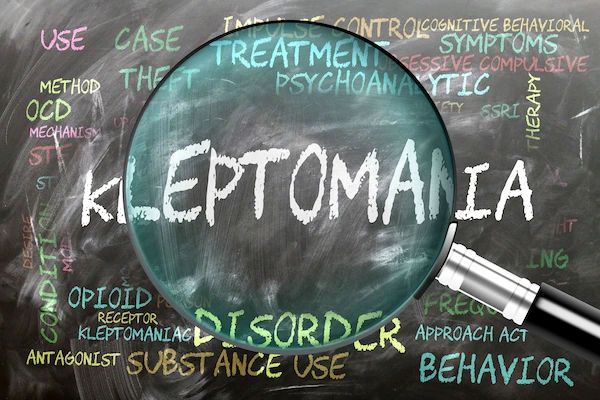Improving Mental Health And Reducing Depression
Discover effective strategies to improve mental health and reduce depression. Learn about the causes, symptoms, and professional help available to support your journey to well-being.

Written by Dr.Sonia Bhatt
Last updated on 3rd Jul, 2025

Mental health is crucial to our overall well-being, yet it often goes overlooked. In recent years, the conversation around mental health has gained momentum, but many people still struggle with understanding and addressing their mental health needs. Depression, in particular, is a common mental health issue that affects millions of people worldwide. According to the World Health Organization, approximately 280 million people suffer from depression globally.
Understanding Depression
Depression is more than just feeling sad or down. It is a serious mental health condition that can affect how you think, feel, and handle daily activities. There are several types of depression, including major depressive disorder, persistent depressive disorder (dysthymia), and seasonal affective disorder (SAD):
Major Depressive Disorder (MDD): A serious mental health condition characterised by persistent feelings of sadness, hopelessness, and loss of interest or pleasure in activities, lasting for at least two weeks and significantly impacting daily life.
Persistent Depressive Disorder (Dysthymia): A long-term form of depression lasting for at least two years, with symptoms that may be less severe than major depressive disorder but still interfere with daily functioning and overall well-being.
Seasonal Affective Disorder (SAD): A type of depression that occurs seasonally, typically in the fall and winter months when there is less sunlight, and improves during the spring and summer. Symptoms include low energy, mood changes, and difficulty concentrating.
Causes of Depression
Understanding the causes of depression can help in managing and reducing its impact. Depression can arise from a combination of biological, psychological, and environmental factors:
Biological Factors: Genetics can play a significant role in depression. If you have a family history of depression, you may be more susceptible. Additionally, imbalances in brain chemicals, such as serotonin and dopamine, can contribute to depressive symptoms.
Psychological Factors: Certain cognitive patterns, such as negative thinking or low self-esteem, can increase the risk of depression. Past trauma or unresolved emotional issues can also be significant contributors.
Environmental Factors: Stressful life events, such as the loss of a loved one, job loss, or relationship problems, can trigger depression. Lifestyle choices, such as lack of physical activity or poor diet, can also play a role.
Signs and Symptoms of Depression
Recognising the signs and symptoms of depression is crucial for seeking help and support. Depression can manifest in various ways, and it may affect different people differently. Here are some common signs and symptoms to look out for:
1. Emotional Symptoms
Persistent Sadness: Feeling sad, empty, or hopeless most of the time is a key sign of depression. This sadness may not seem to have a clear cause.
Loss of Interest: You may find that activities you once enjoyed, such as hobbies, socialising, or spending time with loved ones, no longer bring you pleasure.
Irritability: Feeling more irritable or frustrated than usual can be a symptom of depression. You might find yourself getting upset over small things.
Feelings of Guilt or Worthlessness: Many people with depression experience feelings of guilt or worthlessness. You may blame yourself for things that are not your fault or feel like you are not good enough.
2. Physical Symptoms
Changes in Appetite: Depression can lead to significant changes in your appetite. Some people may eat more and gain weight, while others may lose their appetite and lose weight.
Sleep Disturbances: You might have trouble sleeping (insomnia) or sleep too much (hypersomnia). Sleep disturbances can make you feel more tired and affect your mood.
Fatigue: Feeling constantly tired or lacking energy is a common symptom. Even small tasks may feel overwhelming.
Physical Aches and Pains: Some people with depression experience unexplained physical symptoms, such as headaches, stomachaches, or other aches and pains.
3. Cognitive Symptoms
Difficulty Concentrating: You may find it hard to focus, make decisions, or remember things. This can affect your work or studies.
Negative Thinking: Depression often leads to negative thought patterns. You might find yourself thinking that things will never get better or that you are a failure.
Thoughts of Death or Suicide: In severe cases, depression can lead to thoughts of self-harm or suicide. If you or someone you know is experiencing these thoughts, it is essential to seek help immediately.
4. Behavioural Symptoms
Withdrawal from Social Activities: You may start to isolate yourself from friends and family, avoiding social situations that you once enjoyed.
Changes in Work or Academic Performance: Depression can affect your motivation and productivity, leading to a decline in work or academic performance.
Neglecting Responsibilities: You might find it challenging to keep up with daily responsibilities, such as work, household chores, or personal care
Consult Top Psychiatrists
Strategies for Improving Mental Health
Mental health is a vital component of overall well-being, and taking proactive steps to enhance it can lead to a more fulfilling life. Whether you are experiencing symptoms of depression or simply seeking to boost your emotional resilience, there are effective strategies available.
1. Professional Help
One of the most effective ways to improve mental health and reduce depression is to seek professional help. Therapy and counselling can provide a safe space to explore feelings and develop coping strategies. There are various types of therapy available, including:
Cognitive Behavioural Therapy (CBT): This therapy focuses on identifying and changing negative thought patterns and behaviours.
Dialectical Behaviour Therapy (DBT): DBT is particularly effective for individuals with intense emotions and self-destructive behaviours. It combines cognitive-behavioural techniques with mindfulness practices.
Psychodynamic Therapy: This approach explores the unconscious mind and how past experiences influence current behaviour.
If you are unsure about which type of therapy is right for you, consider speaking with a mental health professional who can guide you in the right direction.
2. Medication
In some cases, medication may be necessary to manage depression. Antidepressants can help balance brain chemicals and alleviate symptoms. It is essential to consult a healthcare provider before starting any medication, as they can help determine the best course of action based on your individual needs.
3. Lifestyle Changes
Making positive lifestyle changes can significantly impact your mental health. Here are some key areas to focus on:
Nutrition: What you eat can affect your mood and mental health. A balanced diet rich in fruits, vegetables, whole grains, lean proteins, and healthy fats can help improve your overall well-being. Certain foods, such as fatty fish, nuts, and dark chocolate, boost mood and cognitive function. Avoiding excessive sugar and processed foods can also help stabilise your mood.
Exercise: Physical activity is a powerful tool for improving mental health. Regular exercise releases endorphins, which are natural mood lifters. Aim for at least 30 minutes of moderate exercise most days of the week. Activities such as walking, jogging, swimming, or dancing can be enjoyable ways to stay active.
Sleep Hygiene: Quality sleep is essential for mental health. To improve your sleep hygiene, establish a regular sleep schedule, create a calming bedtime routine, and make your sleep environment comfortable and conducive to rest.
4. Mindfulness and Stress Reduction
Practising mindfulness can help you manage stress and improve your mental health. Mindfulness involves being present in the moment and observing your thoughts and feelings without judgment. Meditation, deep breathing exercises, and yoga can help cultivate mindfulness. These practices can reduce stress, enhance emotional regulation, and promote a sense of calm. Start with a few minutes each day and gradually increase the duration as you become more comfortable.
5. Building a Support System
Having a strong support system is vital for mental health. Social connections can provide emotional support, reduce feelings of isolation, and improve overall well-being. Contact friends, family, or support groups to share your experiences and feelings. Building and maintaining supportive relationships can be crucial to your mental health journey.
Coping Strategies for Daily Life
Incorporating effective coping strategies into your daily routine can significantly enhance your mental health and overall well-being. These strategies not only help manage stress and anxiety but also foster a sense of fulfillment and joy.
Journaling: Journaling can be a therapeutic way to express your thoughts and feelings. Writing about your experiences can help you process emotions and gain insights into your mental state. Consider setting aside time daily to write about your thoughts, feelings, or even things you are grateful for.
Setting Realistic Goals: Setting achievable goals can provide a sense of purpose and direction. Break larger goals into smaller, manageable steps to avoid feeling overwhelmed. Celebrate your accomplishments, no matter how small, as this can boost your confidence and motivation.
Engaging in Hobbies: Pursuing hobbies and interests can be a great way to improve mental health. Engaging in activities you enjoy can provide a sense of accomplishment and joy. Find time to indulge in your passions, whether painting, gardening, playing a musical instrument, or cooking. Hobbies can also distract from negative thoughts and provide a creative outlet.
Consult Top Psychiatrists For More Coping Strategies
Resources and Support
Accessing the right resources and support can make a significant difference in your journey towards better mental health. By exploring these resources, you can find the support you need to foster resilience, gain insights, and develop effective coping strategies in your daily life.
If you or someone you know is struggling with mental health issues, it’s essential to seek help. There are numerous support groups available that can provide immediate assistance and guidance. These resources can connect you with trained professionals offering support and advice.
There are many books and apps designed to help improve mental health. Additionally, mental health apps can provide guided meditations, mood tracking, and resources for managing stress. Explore options that resonate with you and incorporate them into your daily routine.
Conclusion
Improving mental health and reducing depression is not just a destination but a continuous journey that requires dedication, self-awareness, and the willingness to seek help. By understanding the complexities of depression and recognizing its signs and symptoms, you empower yourself to take action. Implementing effective strategies such as seeking professional help, making lifestyle changes, and practicing mindfulness can significantly enhance your emotional well-being. Moreover, building a strong support system and utilizing available resources can provide the encouragement and guidance needed to navigate challenges.
Consult Top Psychiatrists
Consult Top Psychiatrists

Dr Rohit Ranjan
Psychiatrist
10 Years • MBBS, MD (Psychiatry)
Bengaluru
Apollo Medical Center, Marathahalli, Bengaluru

Dr. Deborshi Das
Psychiatrist
7 Years • MBBS, MD Psychiatry
Barasat
Diab-Eat-Ease, Barasat

Dr. Kommoju Venkata Eswar
Psychiatrist
8 Years • MBBS, MD Psychiatry
Avenue
Wellness Point, Avenue

Dr. Vivek Pathak
Psychiatrist
15 Years • MBBS, MD (Psychiatry)
Noida
Dr kumars family clinic, Noida
(25+ Patients)

Dr Harish K S
Psychiatrist
6 Years • MBBS, MD Pychaitrist
Bengaluru
Apollo Clinic, JP nagar, Bengaluru
Consult Top Psychiatrists For More Coping Strategies

Dr Rohit Ranjan
Psychiatrist
10 Years • MBBS, MD (Psychiatry)
Bengaluru
Apollo Medical Center, Marathahalli, Bengaluru

Dr. Deborshi Das
Psychiatrist
7 Years • MBBS, MD Psychiatry
Barasat
Diab-Eat-Ease, Barasat

Dr. Kommoju Venkata Eswar
Psychiatrist
8 Years • MBBS, MD Psychiatry
Avenue
Wellness Point, Avenue

Dr. Vivek Pathak
Psychiatrist
15 Years • MBBS, MD (Psychiatry)
Noida
Dr kumars family clinic, Noida
(25+ Patients)

Dr Harish K S
Psychiatrist
6 Years • MBBS, MD Pychaitrist
Bengaluru
Apollo Clinic, JP nagar, Bengaluru
Consult Top Psychiatrists

Dr Rohit Ranjan
Psychiatrist
10 Years • MBBS, MD (Psychiatry)
Bengaluru
Apollo Medical Center, Marathahalli, Bengaluru

Dr. Deborshi Das
Psychiatrist
7 Years • MBBS, MD Psychiatry
Barasat
Diab-Eat-Ease, Barasat

Dr. Kommoju Venkata Eswar
Psychiatrist
8 Years • MBBS, MD Psychiatry
Avenue
Wellness Point, Avenue

Dr. Vivek Pathak
Psychiatrist
15 Years • MBBS, MD (Psychiatry)
Noida
Dr kumars family clinic, Noida
(25+ Patients)

Dr Harish K S
Psychiatrist
6 Years • MBBS, MD Pychaitrist
Bengaluru
Apollo Clinic, JP nagar, Bengaluru




